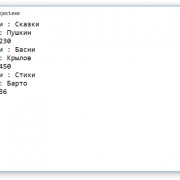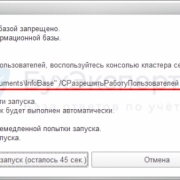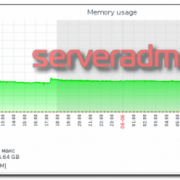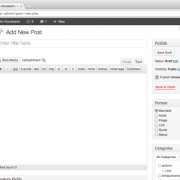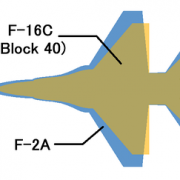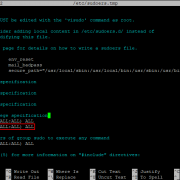Aptana studio
Содержание:
- Aptana Studio Frequently Asked Legal Questions
- What is Aptana’s software licensing model for Aptana Studio?
- Why does Aptana use a dual licensing model?
- Which license should I use?
- Can I redistribute Aptana Studio or Jaxer as is, without any modifications?
- To what extent can I modify Aptana Studio or Jaxer source code under GPLv3?
- Can I add EPL’d plugins to Aptana Studio package and redistribute it?
- What if I want to make changes to some of Aptana Studio’s EPL’d plugins?
- Can I take unmodified Aptana Studio binaries and combine them with an Eclipse distribution?
- Can I repackage Aptana Studio or Jaxer and distribute it?
- Company
- Other products
Aptana Studio Frequently Asked Legal Questions
What is Aptana’s software licensing model for Aptana Studio?
Aptana Studio 2 uses a «dual licensing» model. Under this model, users may choose to use Aptana Studio under the free software/open source
GNU General Public License (commonly known as the «GPL») with the Aptana-GPL Exception, or under the
Aptana Public License (known as the «APL»).
Aptana Studio 3 is available solely under the GPL
We may be willing to enter into other commercial licensing arrangements on a case-by-case basis.
Under the GPL license, Aptana Studio is available free of charge, as long as the use of Aptana Studio adheres to the terms of the GPL license (with Aptana-GPL exception). Users may download the software for free, and modify, integrate and
distribute it. However, GPL users must abide by the rules of the GPL, which stipulate that if a work based on Aptana Studio is redistributed, the complete source code for this work must also be open and available for redistribution under
the terms of the GPL. See the GPL and the
FAQ of the Free Software Foundation for more details.
Aptana offers the APL license for organizations that want to use Aptana Studio free of charge and modify, integrate and distribute it for personal or internal use only, without any redistribution requirements. If you want to make a commercial
use of Aptana Studio, you must do so as part of an open source project, under the GPL, or under other commercial license terms we may agree to.
Why does Aptana use a dual licensing model?
Aptana wants to make our products available to everyone, and we want to continue to make the source code available and encourage outside contributions.
By adopting a dual license model, Aptana can remain open source and encourage the freedom of development and contribution that has made us who we are. In addition, it makes it easier to use our software in situations where the GPL is not an option.
The dual licensing model sustains both innovation and growth. If a company sells a version of Aptana Studio or Jaxer, or a work based on it, and cannot contribute the code back to the community, we ask that they contact us for a commercial license. On
the other hand, developers that want to create better open-source software can continue to do so under the GPL and ensure that everyone benefits from each other’s contributions.
Which license should I use?
If your contribution or development falls under the GPL we are encouraging you to use the GPL to perpetuate the spirit of the open source community. If GPL doesn’t work for you, then the APL allows unrestricted noncommercial use and modification without
redistribution. If you need to commercially distribute a version of Aptana Studio and can’t use the GPL, contact us to discuss a commercial license and assistance in commercial integration.
Can I redistribute Aptana Studio or Jaxer as is, without any modifications?
Yes. If you just want to redistribute the software as is, in source or binary form, commercially or as open source, you are free to do so under the terms of the GPL.
To what extent can I modify Aptana Studio or Jaxer source code under GPLv3?
Can I add EPL’d plugins to Aptana Studio package and redistribute it?
No. You can only redistribute the unmodified binary versions of the EPL’d plugins that are part of Aptana Studio when distributing any of the GPL’d code. Adding any files to Aptana Studio package creates a derivative work, and since all derivative works
need to be made GPL’d, you will not be able to add EPL’d (or any other license) plugins without contacting us for a commercial license.
What if I want to make changes to some of Aptana Studio’s EPL’d plugins?
You are free to make changes to any of Aptana Studio EPL’d code under the terms of the EPL. To get those redistributed as part of Aptana Studio, we encourage you to contribute those back to Aptana so that we may evaluate your changes for inclusion back
into the product.
Can I take unmodified Aptana Studio binaries and combine them with an Eclipse distribution?
No. Combining our GPL’d licensed code with any other product requires that the entire product be GPL’d, and therefore you cannot include any Eclipse distribution.
Can I repackage Aptana Studio or Jaxer and distribute it?
Yes, the GPL explicitly permits you to do so but your derivative work must also be released under the GPL 3 or later license. If you need to make modifications, add or remove plugins or otherwise create a work based on Aptana Studio or Jaxer, and you
cannot make those changes available under the GPL, contact us for a commercial license.
Company
Aptana is currently led by Paul Colton, Founder and CEO, Uri Sarid, CTO/VP, Engineering and Kevin Hakman, Director of Evangelism. The staff headcount surpassed 25 after September 1, 2008. Aptana is an active participant in the OpenAjax Alliance, with Hakman serving as director of the IDE Working Group.
Aptana was acquired by Appcelerator, Inc. on January 7, 2011. Employees of Aptana were absorbed to the Mountain View campus of Appcelerator and work is scheduled to continue on the release of Aptana 3.0. Appcelerator in their webcast made users aware of their intention to integrate their mobile application framework with Aptana Studio, with a planned beta within Q1 2011. Emphasis on visual workflow was indicated for both of the products and continued support will continue for existing Aptana products. Appcelerator put Jaxer on GitHub.
Other products
Aptana Jaxer
Aptana Jaxer, made obsolete by Node.js, is an open-source Ajax web server for building rich web pages and applications using a unified Ajax model wherein both client-side and server-side code can be written in JavaScript. Jaxer’s server-side engine is based on Mozilla Gecko, the same browser engine that is used in Firefox. The Mozilla engine allows Jaxer to provide a server-side DOM in which a page may be manipulated during server-side processing using the techniques familiar to client-side programmers. Jaxer’s server-side JavaScript APIs enable database access, file system access, network communications, user sessions and other functions typical of web application servers. Jaxer also provides for access to Java objects via the open source DWR project. Jaxer is now on GitHub.
Aptana Jaxer provides a page-processing environment based on the Mozilla engine. This provides a Gecko-based DOM and SpiderMonkey JavaScript engine to allow pages to be rendered and manipulated on the server before being sent to the browser. Jaxer also provides an Ajax model for performing asynchronous requests to the server. Its client and server APIs allow such requests to be made by simply calling server-side JavaScript functions from the client. Behind the scenes, Jaxer provides the logic required to manage the request and retrieve the response from the server.
It is useful for Web scraping.
Jaxer is not a standalone web server, but works with another server such as Apache, Jetty or Tomcat. Jaxer provides server-side DOM and API processing for pages served by the web server before delivering the results to the browser.
Jaxer may be integrated into Aptana Studio via an optional plugin. It is open source (GPL) and available for Windows, Mac OS X and Linux/Solaris.
As of November 2009 Aptana has significantly scaled back development and support of Jaxer. An Aptana representative noted that «there hasn’t been sufficient adoption to make it a money earning proposition.»
Aptana Cloud Connect
Aptana Cloud Connect is Aptana’s web hosting and application management service. Cloud Connect provides the infrastructure required to host applications developed using technologies supported by Aptana Studio and is primarily based on Apache, with support for general web/Ajax, PHP, Ruby on Rails and Jaxer. Cloud Connect also supports Java-based web applications, which may be deployed and managed using the Cloud service. All applications hosted on Cloud Connect may be developed offline, deployed and managed directly using the Cloud management features included in Aptana Studio. The Cloud Connect service also provides team management, hosted source control (using Subversion), remote editing/preview and application synchronization between local, staging and production environments.
